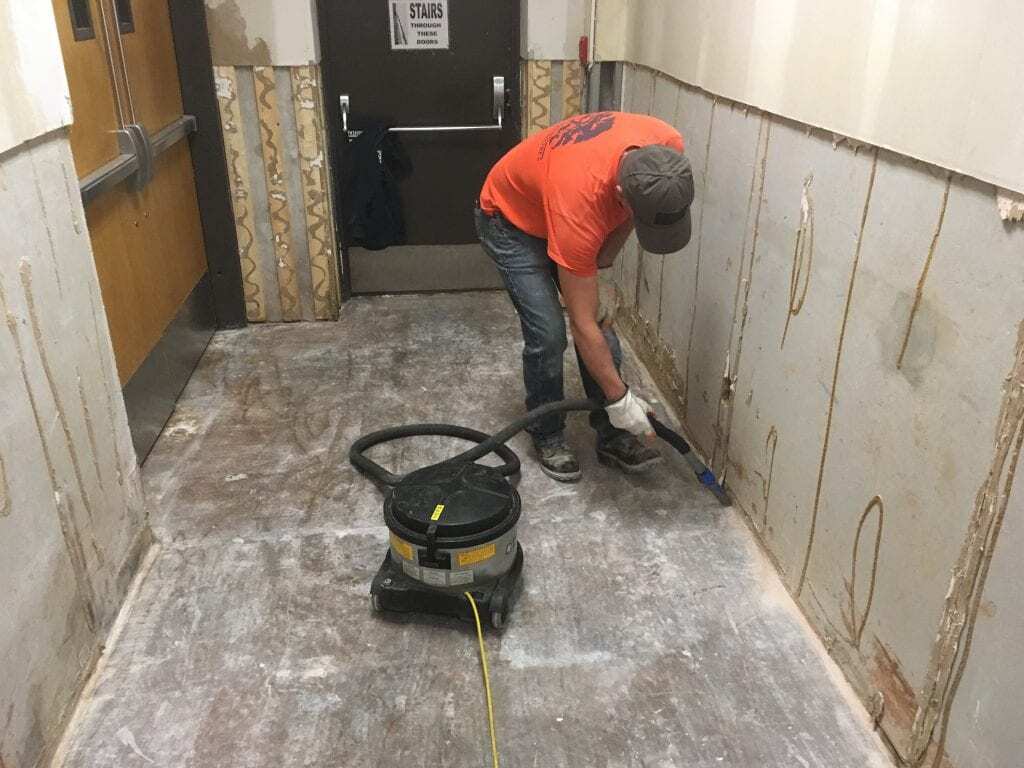
Sometimes it feels like you need a chemistry degree before cleaning anything.
Will it cause more damage than it cleans? Is it made with harsh chemicals best avoided by living creatures?
When it comes to mold, things get even more complex. This ancient life form has largely survived because it’s so hard to kill. What’s more, much of the conventional wisdom around treating mold can be misleading. This begs the question: which cleaning products are best avoided, and which can you rely on?
Bleach Works Only for Some Infestations, Rivals Mold in Toxicity

Bleach is among the first chemicals we look to for stubborn stains.
And while many online articles recommend it for mold, we don’t. Since bleach removes stains as well as disinfects, many assume a “cleaned” spot of mold has been disinfected when only the surface color has changed. Moreover, it has only been found to be effective mold occurring non-porous surfaces like tile, glass, or porcelain.
It’s a different story for absorbent, porous surfaces. When applied to such a surface, blech’s active ingredient—chlorine—quickly dries up, leaving behind water that soaks into the material and helps mold thrive. It’s not uncommon for mold problems to become worse a few days after bleach is applied.
Alcohol Can’t Kill Many Common Mold Varieties
Alcohol is another commonly-used cleaning solution that has a limited impact on mold. Many reach for it because it’s highly effective at killing a variety of microbes (by dissolving lipids and denaturing proteins). When combined with one part rubbing alcohol to one part water, it can clean minor mold stains on fabrics and other porous surfaces.
As a drying agent, alcohol is a better fix for mold when compared to bleach, but it does not tackle every type of mold. Additionally, its effect is limited to mold itself, as alcohol has little ability to deactivate mold spores or kill mycotoxins (the chemicals most responsible for mold’s health impacts). Overall, alcohol is better imbibed than applied.
Vinegar Harms Many Surfaces, Only Kills *Some* Mold

Vinegar is a far better stain remover than mold disinfectant. Acetic acid, its active chemical, has been shown to eliminate some common molds effectively, but not all.
Additionally, vinegar may harm many surfaces that mold commonly appears on, dulling marble and damaging the finish on any wooden floors. What’s more, it’s ineffective mainly for porous surfaces. All in all, vinegar is best left for handling tough stains without discoloration.
Stick to Mold Disinfectants or Laundry Detergent
Many chemicals can disinfect some mold types, but not others. Others still can effectively clean mold, but not without their own health risks.
For that reason, we recommend you stick to mold remediation disinfectant, our household laundry detergent (without bleach). However, you’ll need to call a professional if your infestation is larger than 10 square feet.
Why MoldGone
At MoldGone, we offer FREE mold inspection. Our mold removal and mold remediation services are available at reasonable prices.
Call us today at 240-970-6533 or Click here to schedule your appointment.



Recent Comments